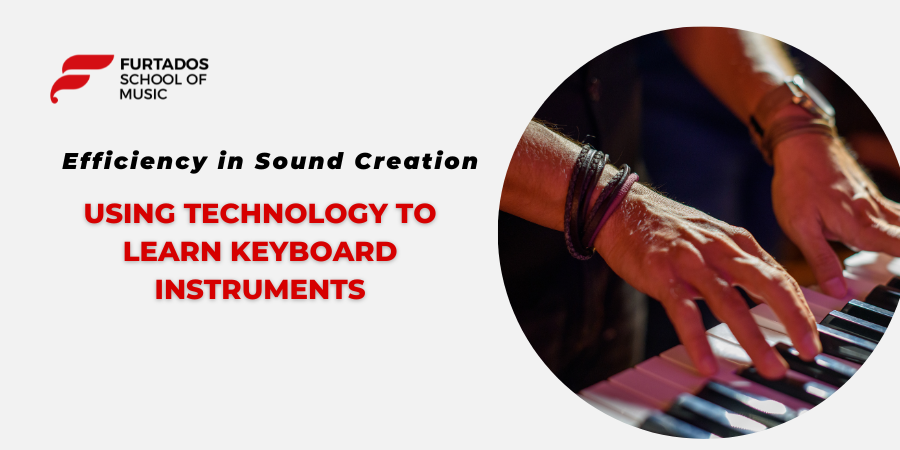Are you eager to learn keyboard and looking for keyboard classes near you, or do you prefer the convenience of learning keyboard online? Regardless of your choice, understanding the science of sound synthesis and embracing technology can significantly accelerate your keyboard learning journey. This fusion of traditional musical instruction with cutting-edge technology can make your progress more efficient and enjoyable. In this article, we will explore how technology and sound synthesis can enhance your experience, and we’ll also touch upon the offerings of the Furtados School of Music, a renowned institution that can further enrich your musical education.
The Science of Sound Synthesis
To fully grasp the role of technology in keyboard learning, it’s essential to comprehend the basics of sound synthesis. Sound synthesis is the process of electronically creating sound, which is at the core of keyboard instruments. It enables you to produce a vast range of sounds, from the classic tones of pianos to the futuristic textures of synthesizers. Here are some key sound synthesis concepts:
- Waveforms: Sound synthesis begins with waveforms. These are fundamental sound shapes, including sine waves, square waves, and sawtooth waves. Different waveforms produce distinct sounds.
- Oscillators: Oscillators generate waveforms. By manipulating oscillators, you can control the pitch and timbre of the sound.
- Filters: Filters shape the tone of a sound by emphasizing or attenuating specific frequencies. They can make a sound brighter, warmer, or more complex.
- Envelopes: Envelopes dictate how a sound evolves over time, controlling parameters like attack (the sound’s initial rise), decay (how the sound changes after the attack), sustain (the sound’s level once the attack and decay phases are complete), and release (how the sound fades away).
- Modulation: Modulation introduces movement and dynamics to a sound. Techniques like frequency modulation (FM) and amplitude modulation (AM) can create rich, evolving tones.
The Role of Technology in Keyboard Learning
Now, let’s explore how technology can elevate your keyboard learning experience:
- Digital Keyboards and Workstations: Modern keyboards often incorporate digital technology to emulate the sound and feel of acoustic pianos and other instruments. These keyboards may include built-in lessons and practice features, making them ideal for beginners.
- Virtual Instruments: Virtual instruments or VST (Virtual Studio Technology) plugins enable you to access a vast array of sounds and instruments on your computer. This flexibility allows you to experiment with different sounds and textures, extending beyond traditional keyboard tones.
- Online Learning Platforms: Learning keyboard online has never been more accessible. Numerous online platforms offer structured courses, video tutorials, and interactive lessons. They often integrate technology to provide instant feedback on your playing, helping you improve your technique.
- Sound Design Software: To delve deeper into sound synthesis, you can use software like synthesizer plugins and digital audio workstations (DAWs). These tools enable you to create and manipulate your own sounds, providing a hands-on understanding of sound synthesis.
- MIDI Controllers: MIDI (Musical Instrument Digital Interface) controllers connect to your computer and allow you to control virtual instruments and software synthesizers. They provide a tactile feel for playing digital sounds and offer flexibility in sound shaping.
Accelerating Your Learning Journey
Now, let’s discuss how this amalgamation of technology and sound synthesis can expedite your keyboard learning journey:
- Customization of Sounds: Technology allows you to customize the sounds you play. This keeps your practice sessions engaging and allows you to explore various musical genres and styles with ease.
- Instant Feedback: Many digital learning tools offer instant feedback on your performance. This helps you correct mistakes promptly and refine your playing technique.
- Visualization of Music Theory: Technology often includes visual aids that make learning music theory more accessible. Interactive displays and animations can help you understand concepts such as scales, chords, and key signatures.
- Recording and Analysis: Digital tools allow you to record your practice sessions and performances. Analyzing your recordings helps you identify areas for improvement and track your progress over time.
- Collaborative Learning: Online platforms and communities enable you to connect with other learners and musicians worldwide. You can collaborate on projects, share ideas, and gain inspiration from a global network of musicians.
- Access to Resources: The internet is a treasure trove of resources for keyboard learners. You can find sheet music, tutorials, forums, and educational content to support your learning.
The Furtados School of Music
As you embark on your keyboard learning journey, consider enrolling in courses offered by the Furtados School of Music. Their renowned institution provides expert guidance and support to musicians of all levels. With their educational programs, you can enhance your keyboard skills, delve deeper into music theory, and receive personalized instruction that caters to your specific goals.
In conclusion, incorporating technology and understanding the science of sound synthesis into your keyboard learning journey can be transformative. Whether you opt for keyboard classes near you or choose to learn keyboard online, embracing technology opens up a world of possibilities. It allows you to explore diverse sounds, customize your learning experience, and gain a deeper understanding of music’s inner workings. With the right tools and the support of institutions like the Furtados School of Music, you’re well on your way to becoming a proficient keyboard player, unlocking your full musical potential.
